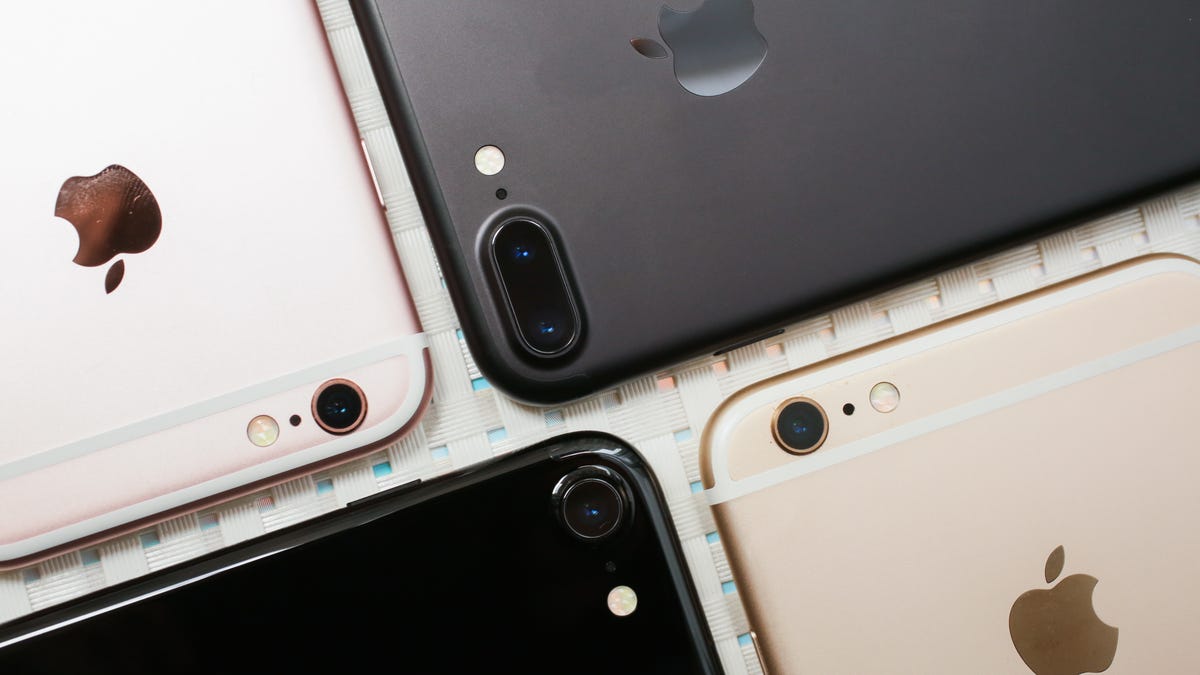iPhone sales slump. Apple still raking in billions
The tech giant points to strong iPhone 7 sales as reason to be optimistic.

The heyday of Apple's lights-out iPhone growth has passed.
Since introducing the hugely popular iPhone 6 two years ago, the tech giant has labored to spark the intense consumer passion it has counted on to make the iPhone an even-better seller year after year.
Apple is still struggling to reignite interest. The iPhone 7, which went on sale last month, has an improved camera and is water resistant. But it looks an awful lot like the iPhone 6, and that may not give consumers enough enticement to upgrade.
Apple's iPhone difficulties were clear for everyone to see on Tuesday, when the company released its financial results for the quarter ended Sept. 24. The company reported its third straight quarter of weaker iPhone sales, marking its first fiscal year of lower phone sales since the blockbuster device was introduced in 2007. Sales and profit for the year were also down.
Overall, the company sold 45.5 million iPhones, five percent fewer than the 48 million it sold in the same quarter a year earlier. However, the performance surpassed Wall Street's forecast of 44.2 million units, according to Bernstein analyst Toni Sacconaghi.
The performance, which comes ahead of a product announcement on Thursday that is expected to feature new Mac computers, highlights the trouble Apple faces with phone fatigue. The iPhone 6 and 6S met many consumers' expectations so now fewer people feel the need to upgrade. And new phones, like Google's Pixel and Pixel XL, are getting favorable reviews, which might tempt some would-be iPhone buyers. Those could become big problems for Apple, since it relies on the iPhone for most of its sales.
Of course, Apple still telegraphed strength going into the holiday season. The company forecast revenue for the current quarter -- the first full quarter to benefit from iPhone 7 sales -- will be between $76 billion and $78 billion, compared with analyst estimates of $74.98 billion, according to Yahoo Finance. The quarter is especially important, because it's the biggest period for iPhone sales.
Revenue for the fourth quarter fell 9 percent but was still a tidy $46.85 billion. Analysts expected $46.89 billion.
Net income dropped to $9.01 billion, or $1.67 a share, from $11.1 billion, or $1.96 a share, a year ago. Wall Street was looking for per-share earnings of $1.65.
Shares fell nearly 3 percent after-hours.
Still top dog
Despite the softer phone sales, Apple executives have plenty of reasons to keep their heads up. Apple is the world's highest-valued company and it's far from losing its dominance in phones. Additionally, its top rival Samsung stumbled badly in recent months when it recalled and ceased production on its Galaxy Note 7 phone after several devices caught fire.
Indeed, demand for the iPhone 7 and the iPhone 7 Plus -- particularly the 7 Plus -- is outstripping supply in many places, CEO Tim Cook told analysts in a call following the earnings release.
"Some reports will focus on Apple having a weak quarter, which ignores the fact that it continues to be the most profitable device maker on the planet and there seems little evidence that will end any time soon," Ben Wood, chief of research at analyst firm CCS Insight, said ahead of the earnings report.
Additionally, hints have already come out that the next iPhone, to be released on the device's 10-year anniversary, should have several big design changes, such as the home-button being integrated into the screen.
Still, weakness was evident in the earnings.
Apple's sales in Greater China continued to slump, dropping 30 percent from a year ago, though Apple executives said those sales should see improvement in the current quarter. And Mac sales fell 14 percent to 4.9 million units, following with weaker sales overall for computers.
Unit sales for iPads continued their decline, hitting an 11th straight month of lower sales. Apple sold 9.3 million iPads, down 6 percent, but beating Wall Street's estimate of 9.1 million. Revenue was essentially flat, though, thanks to the higher-priced iPad Pro.
Services revenue, which includes AppleCare and Apple Pay, continued to perform well, rising 24 percent.
Originally published at 1:54 p.m. PT.
Updated, 3:46 p.m. PT: Adds more context from analyst call.

